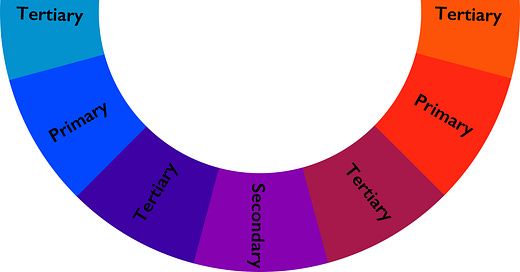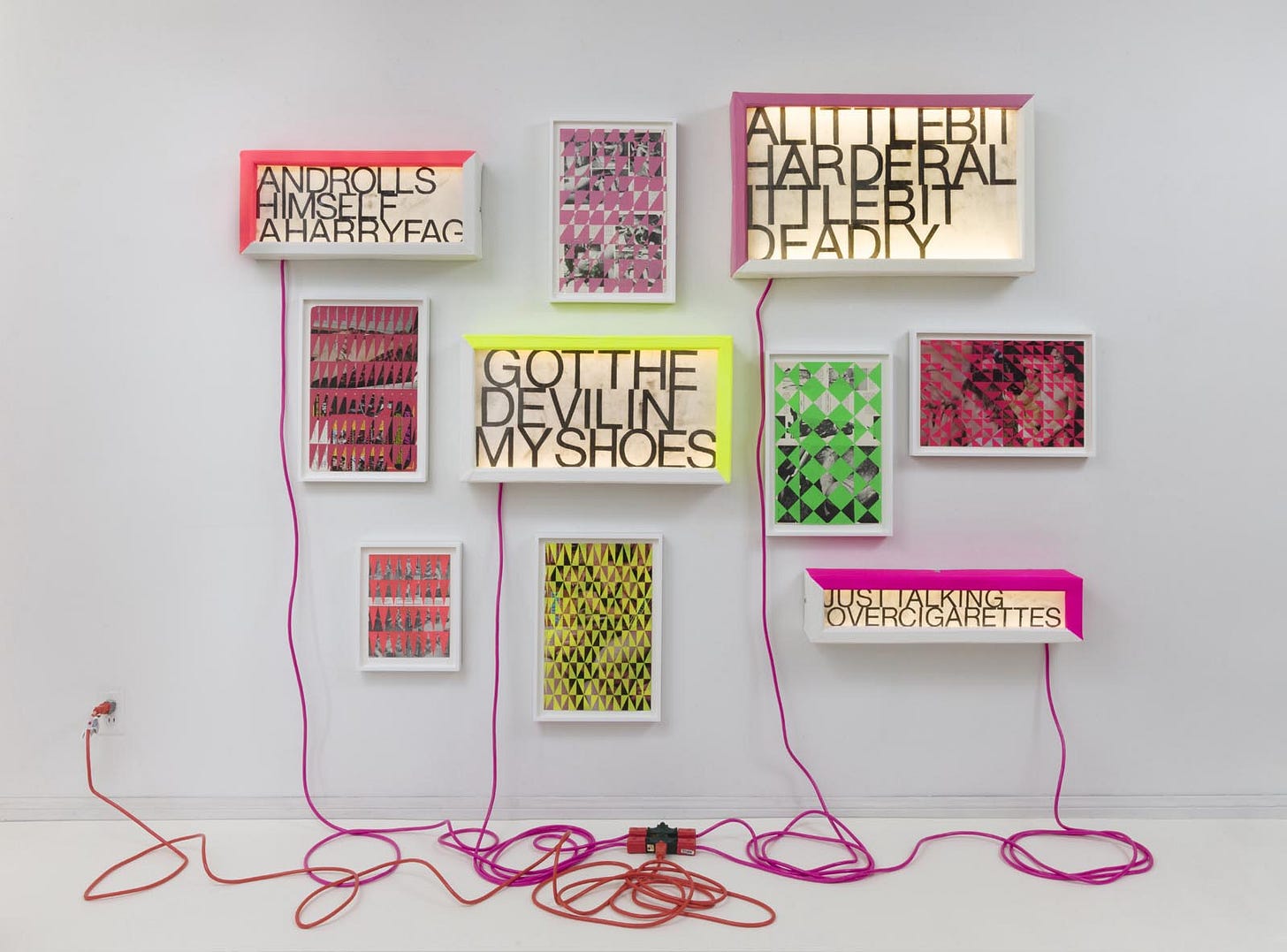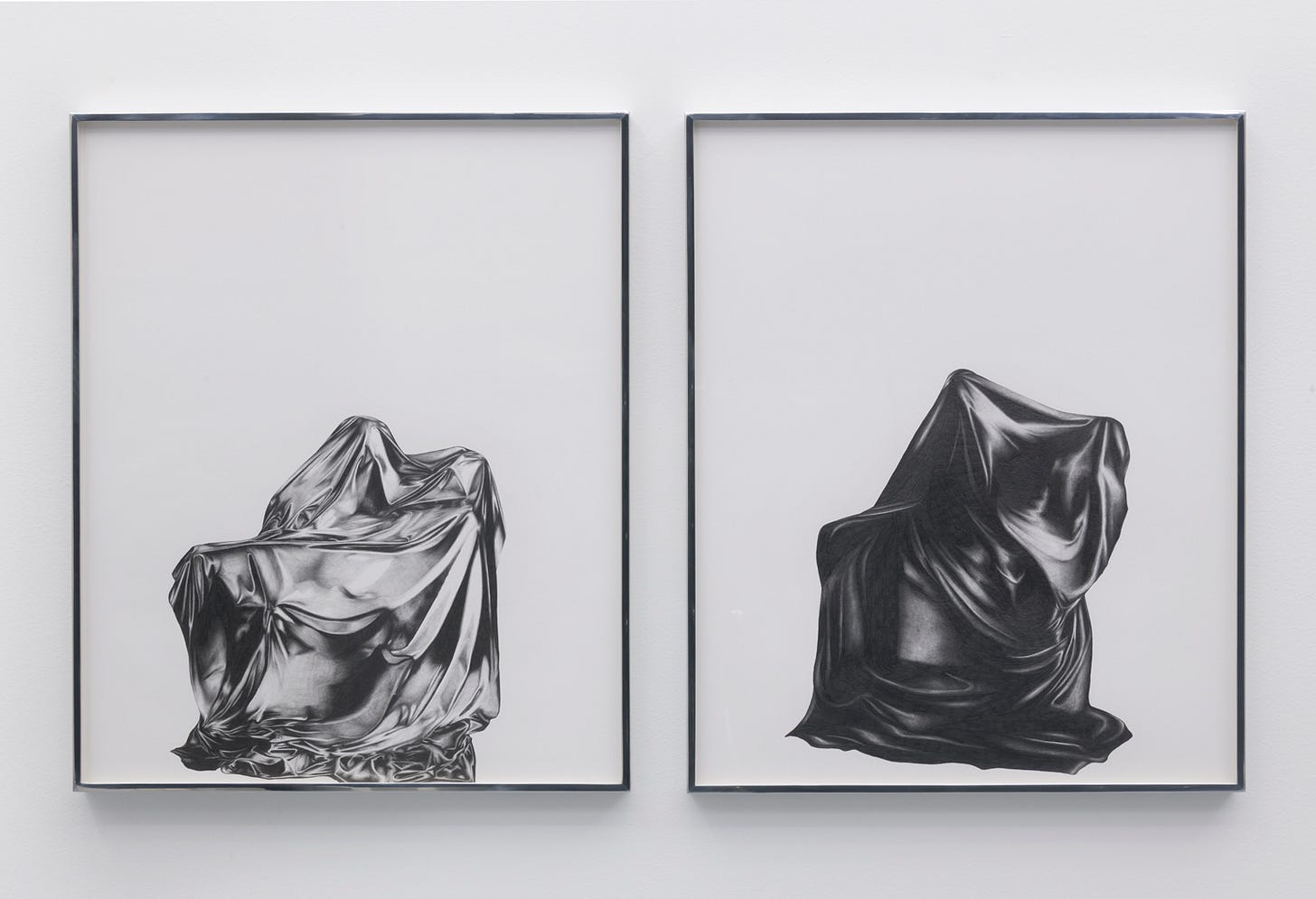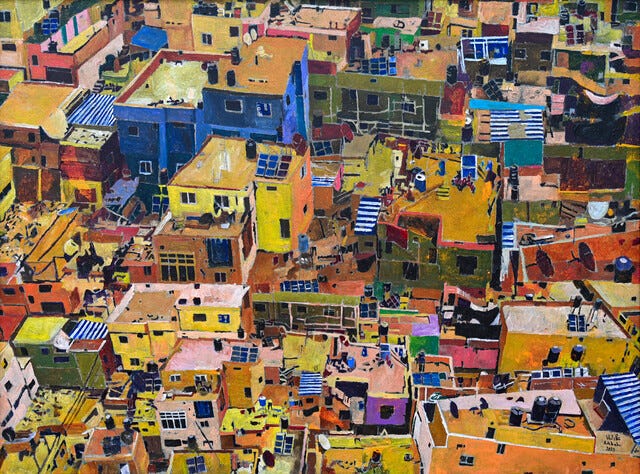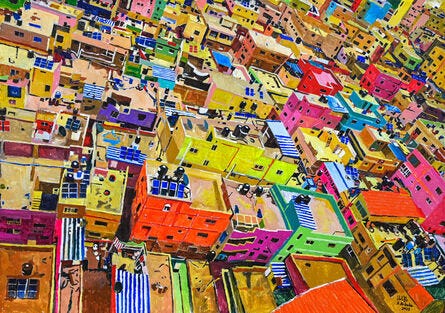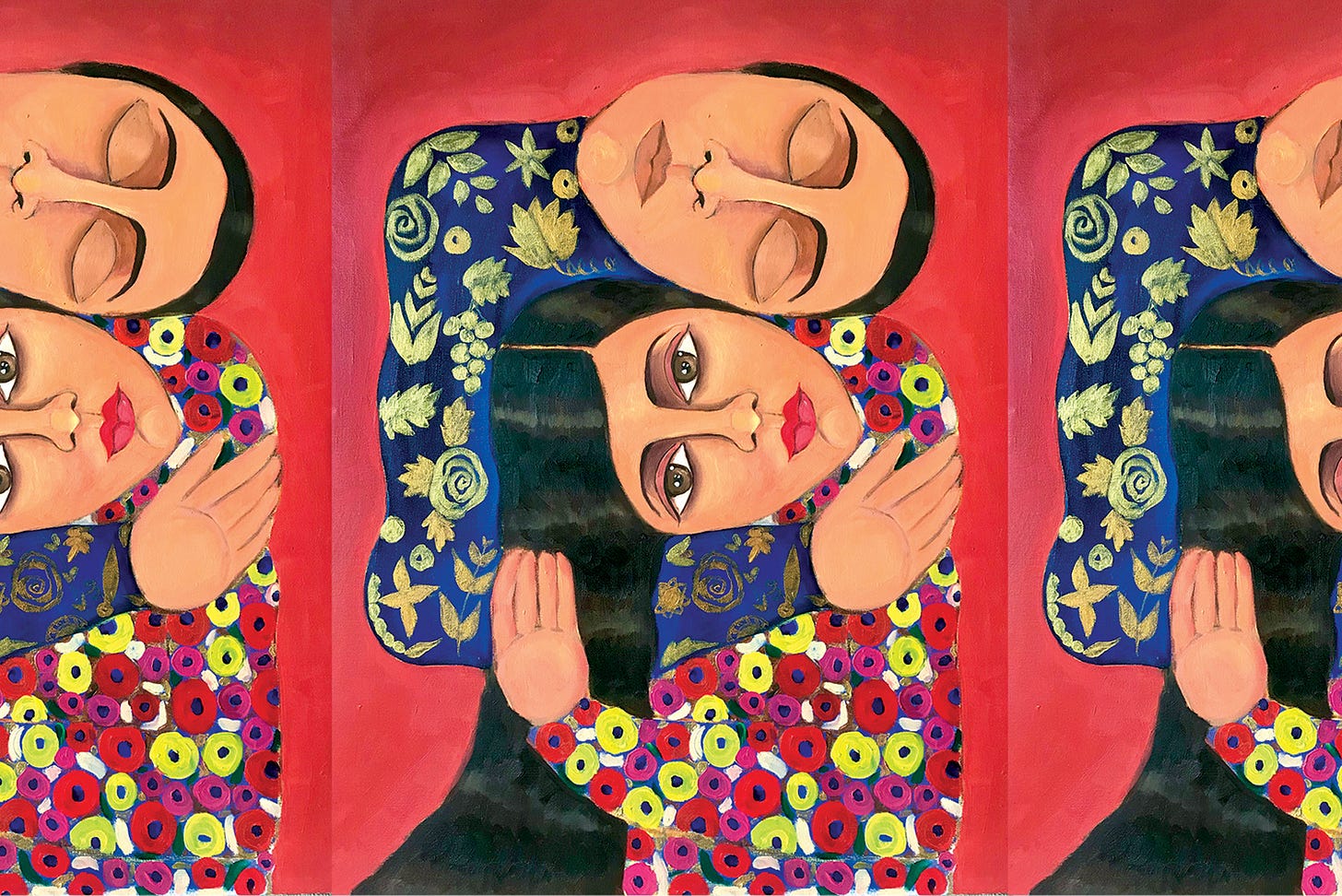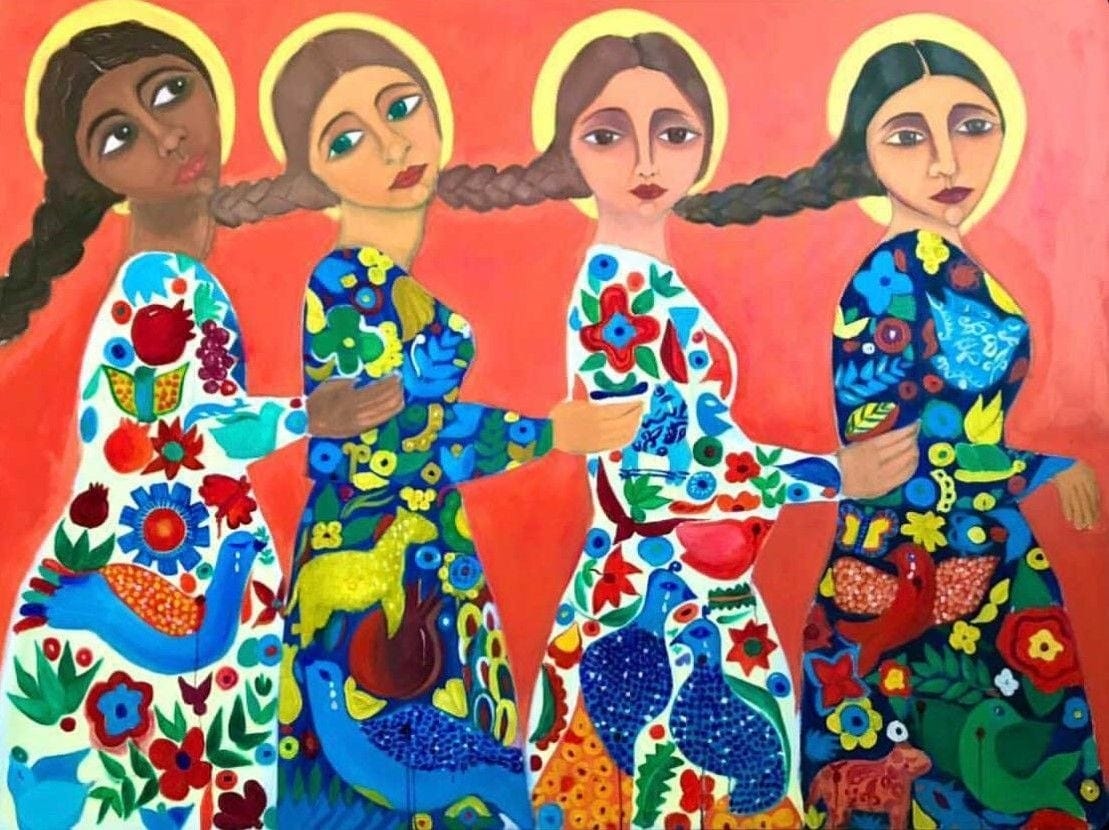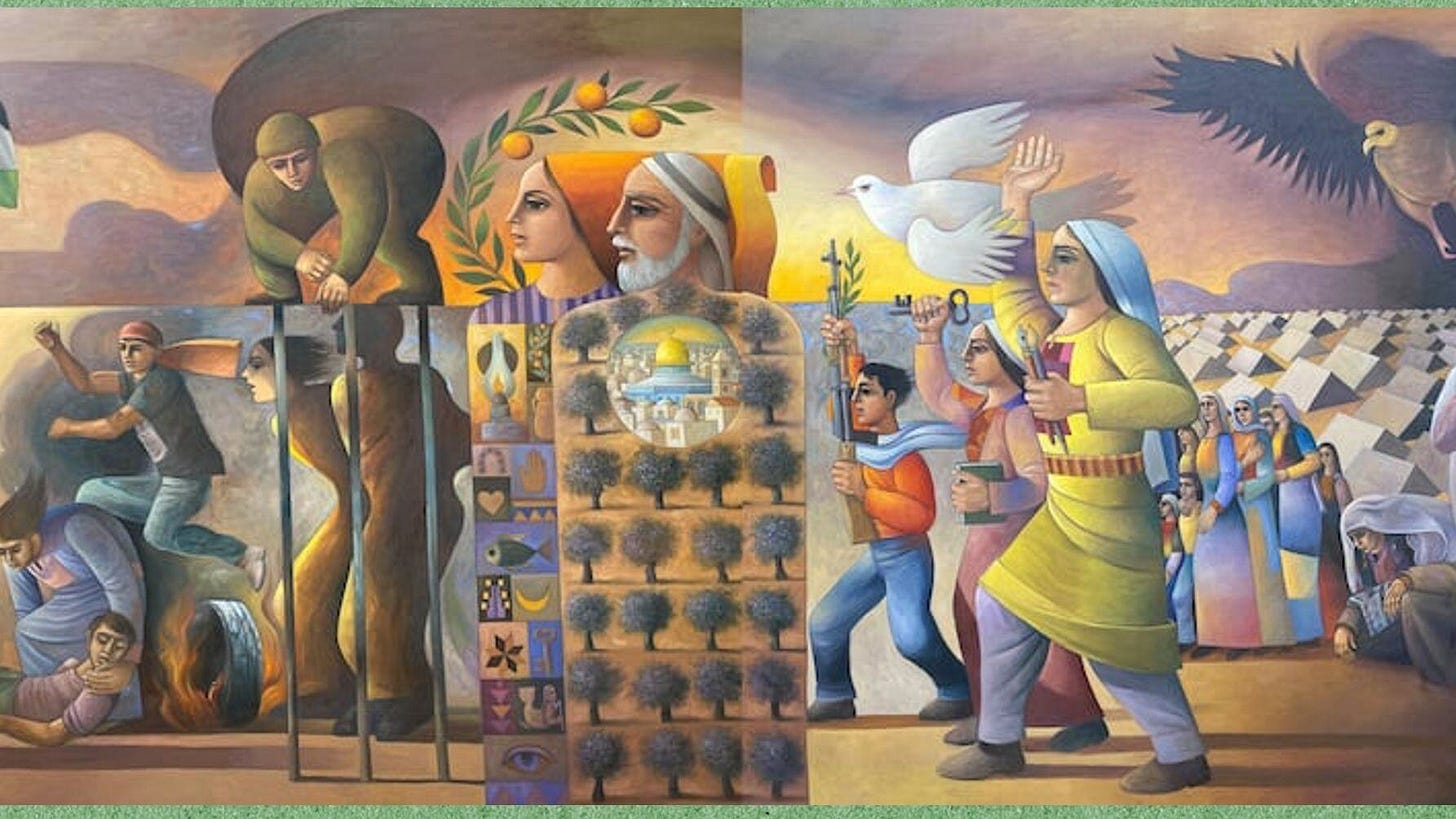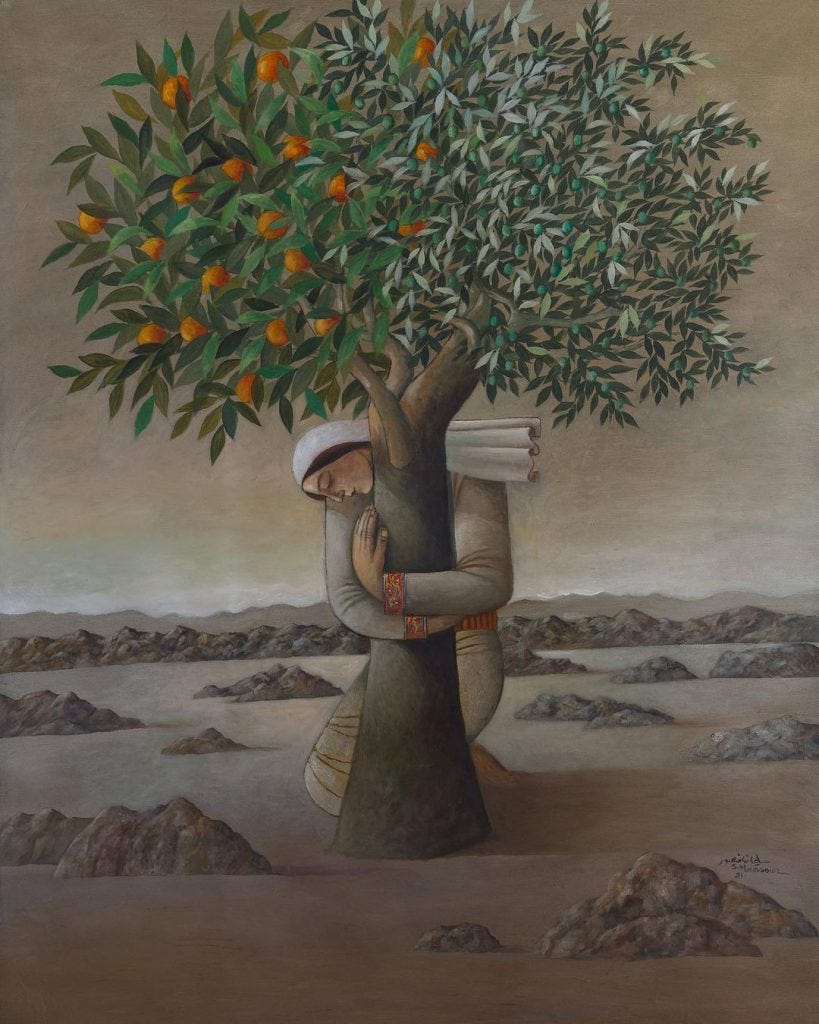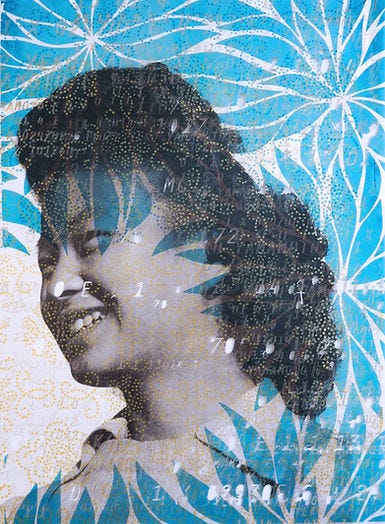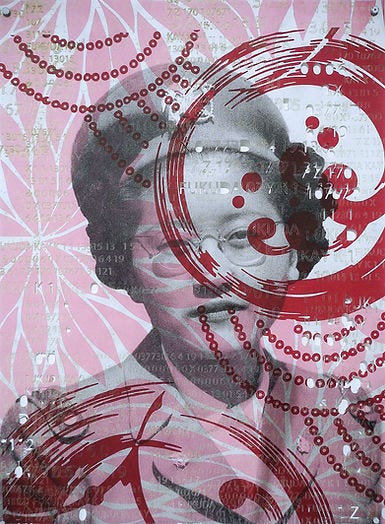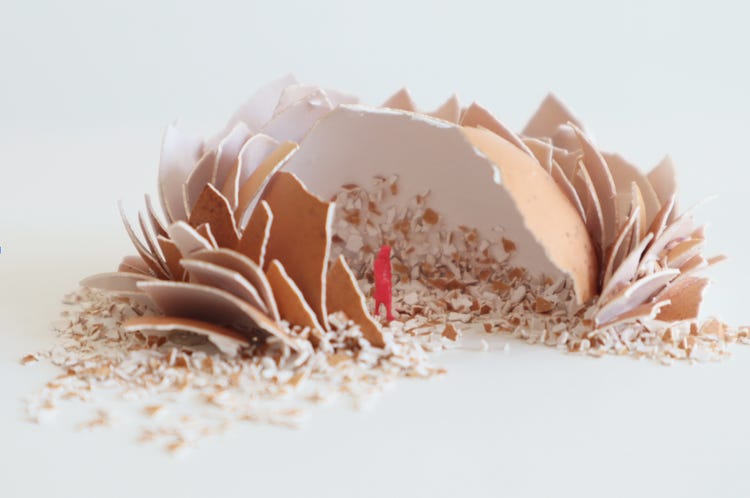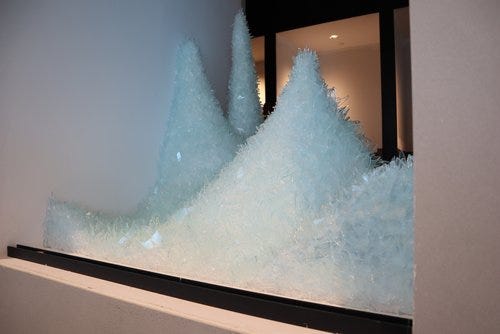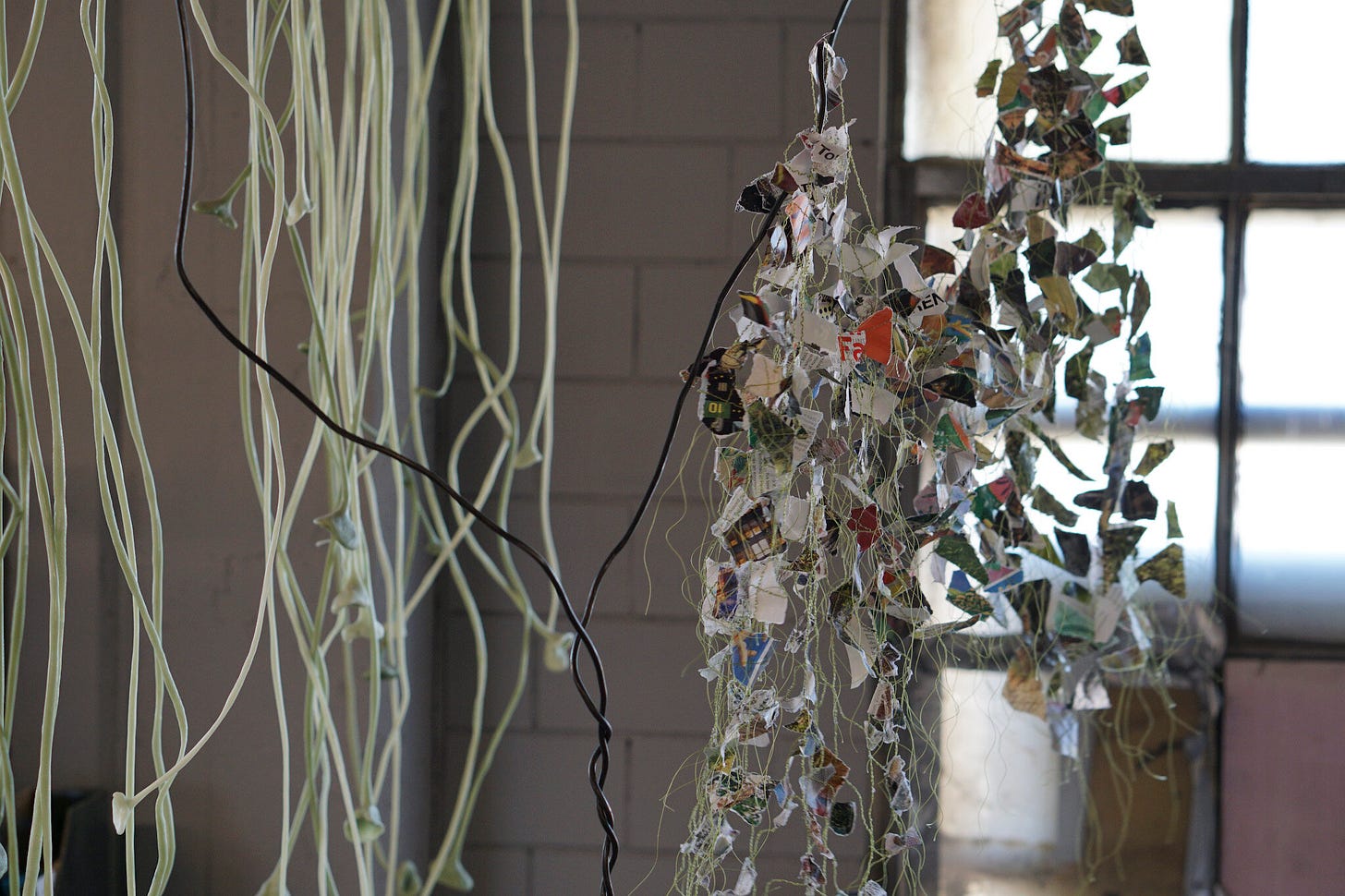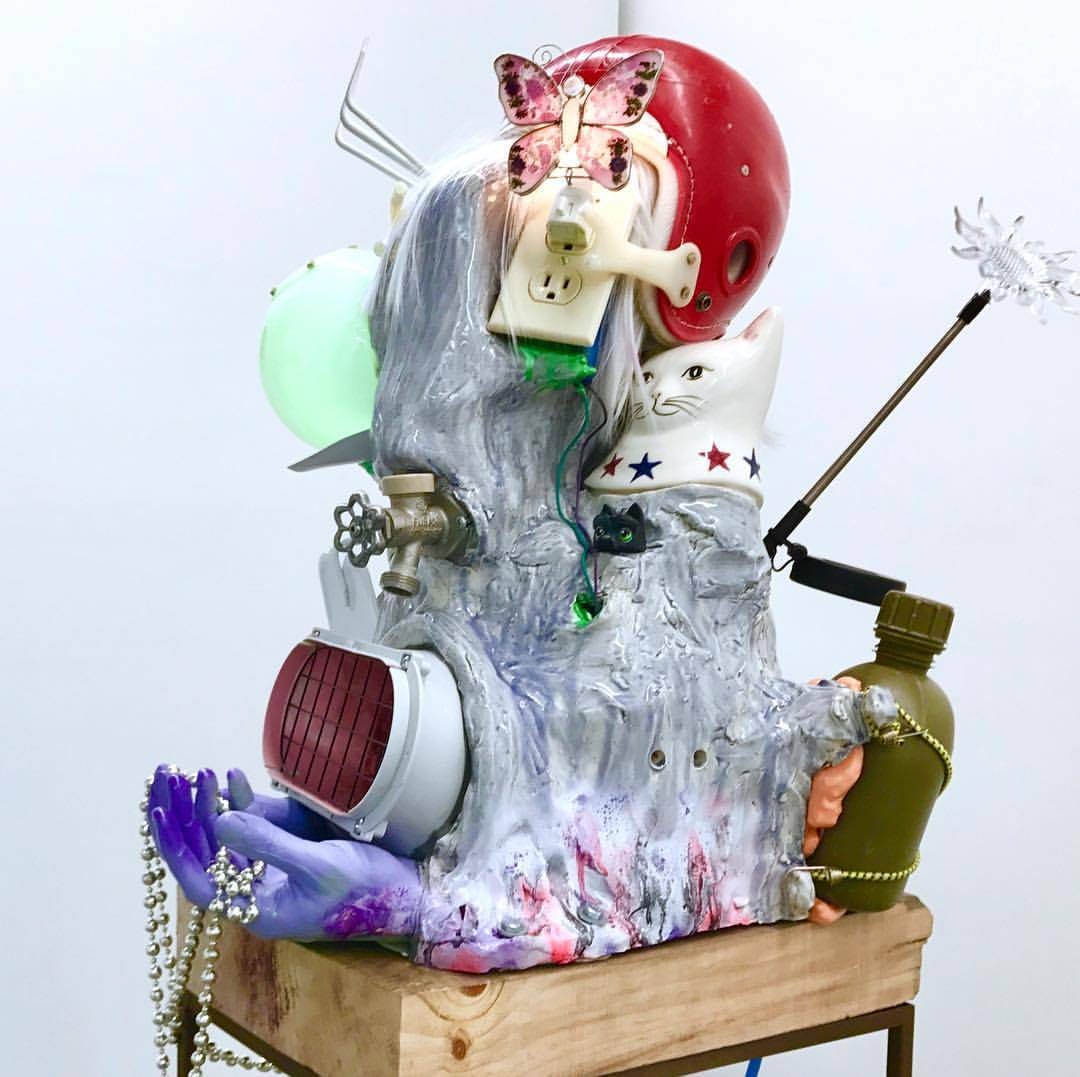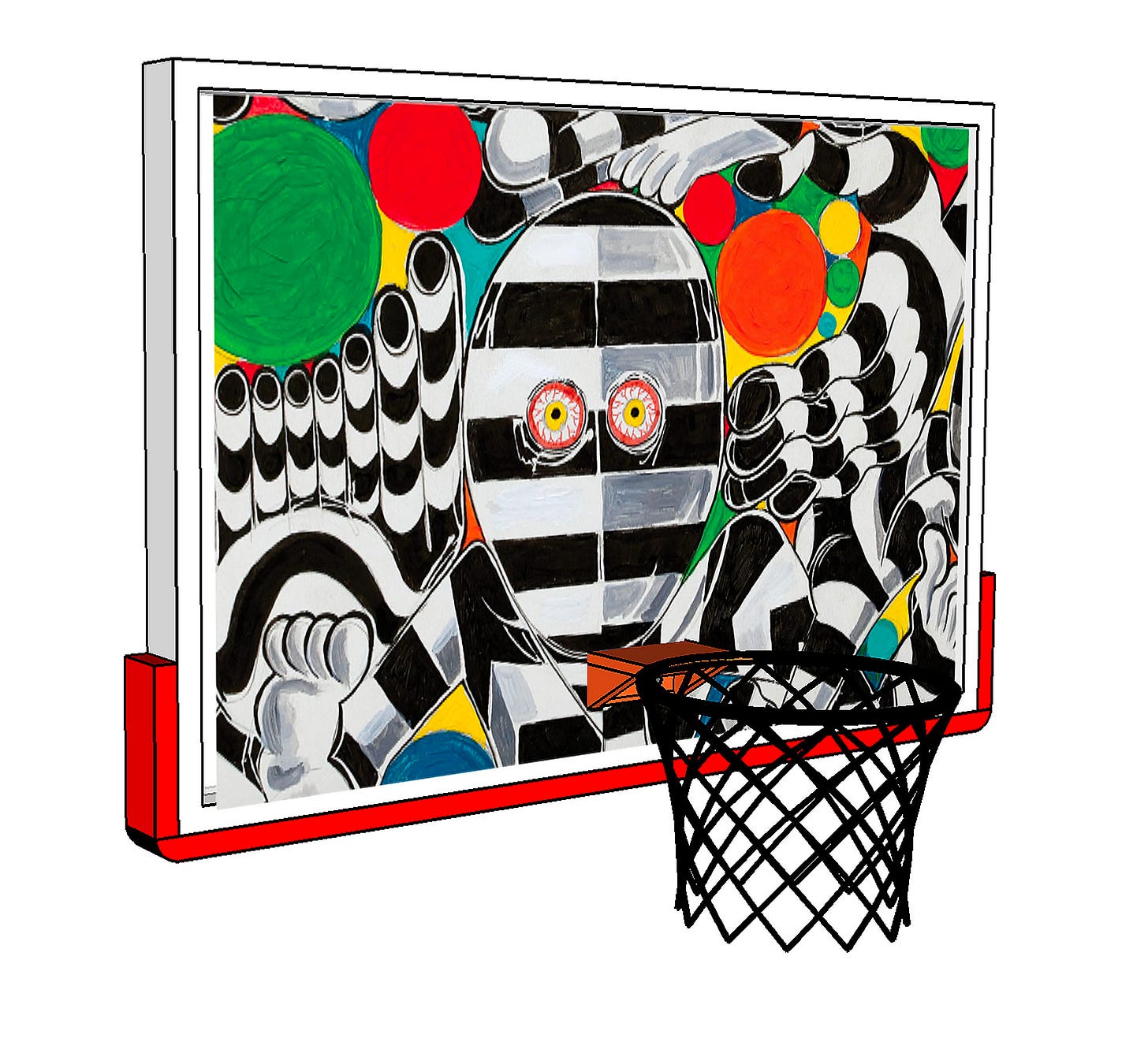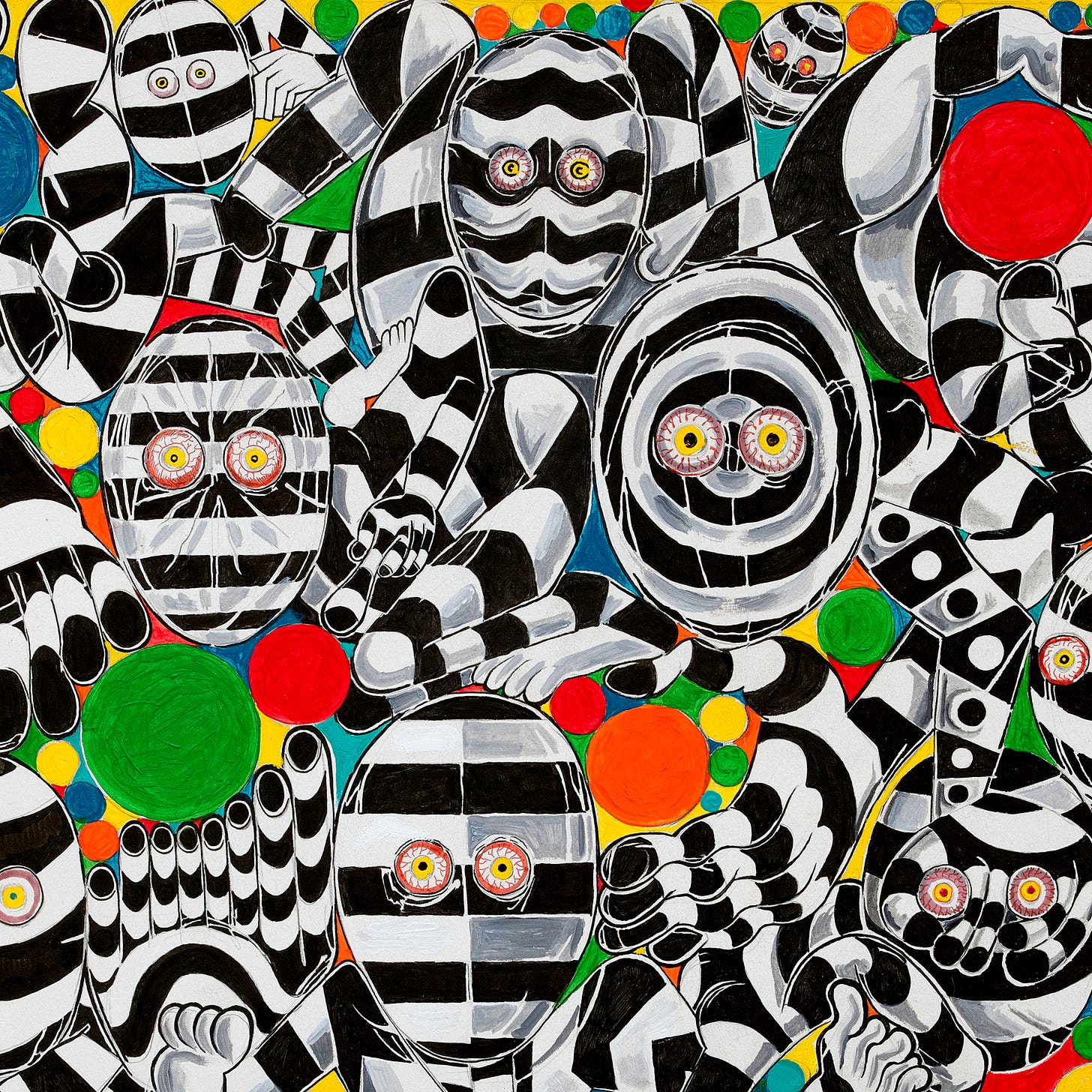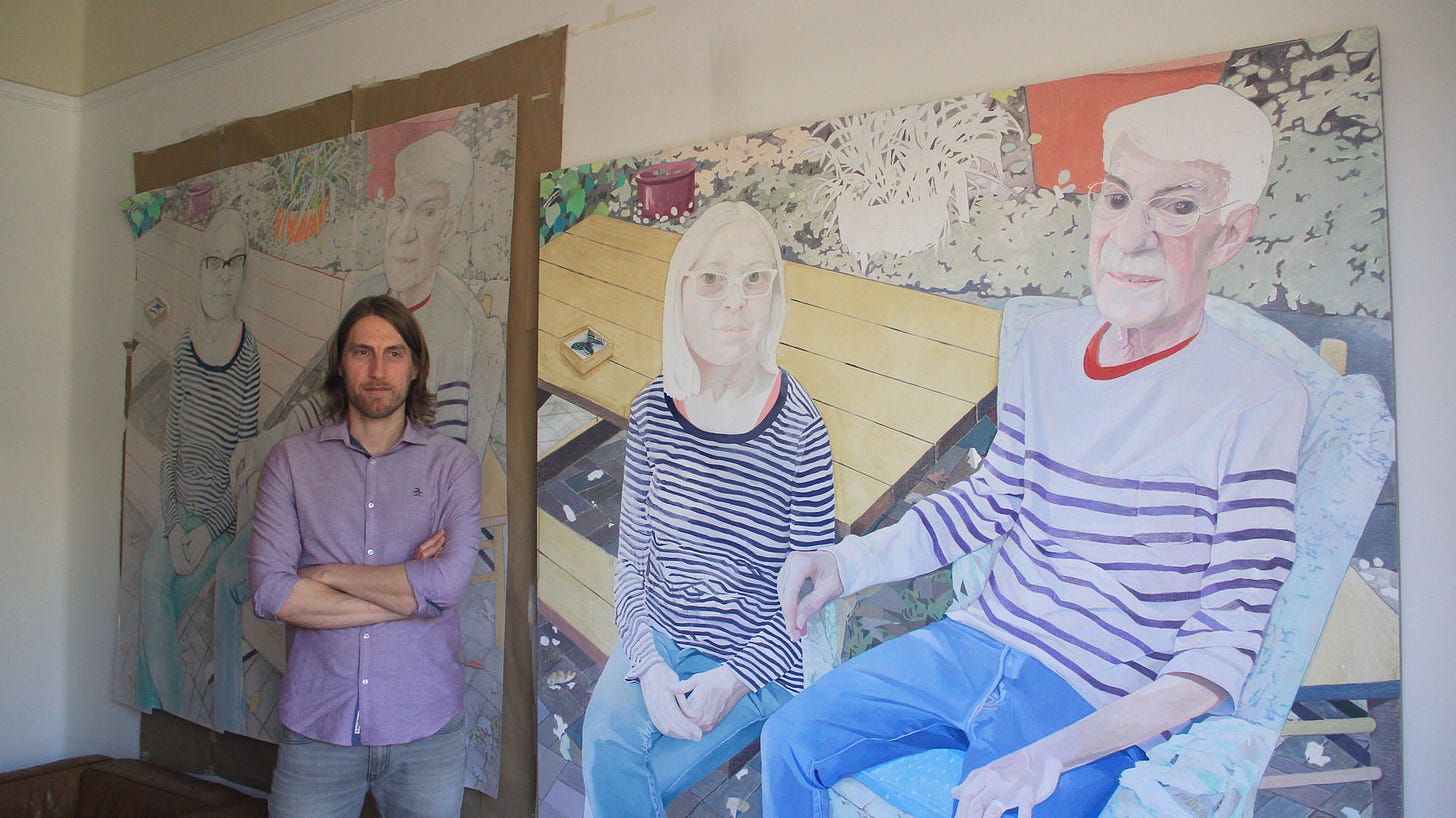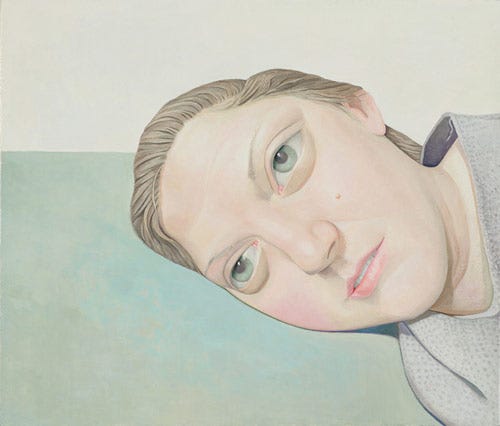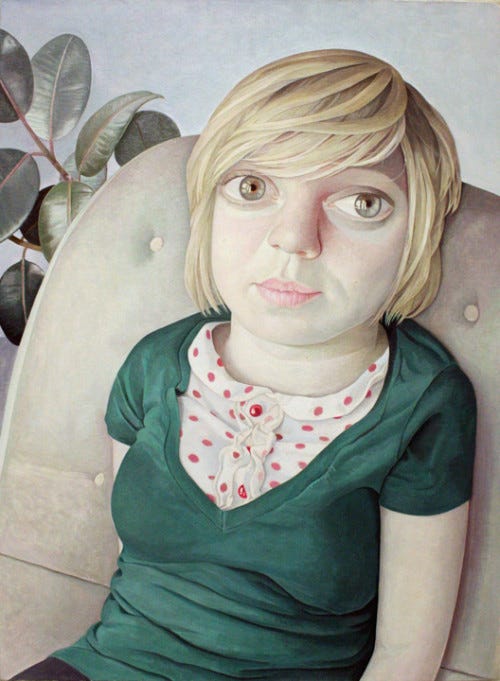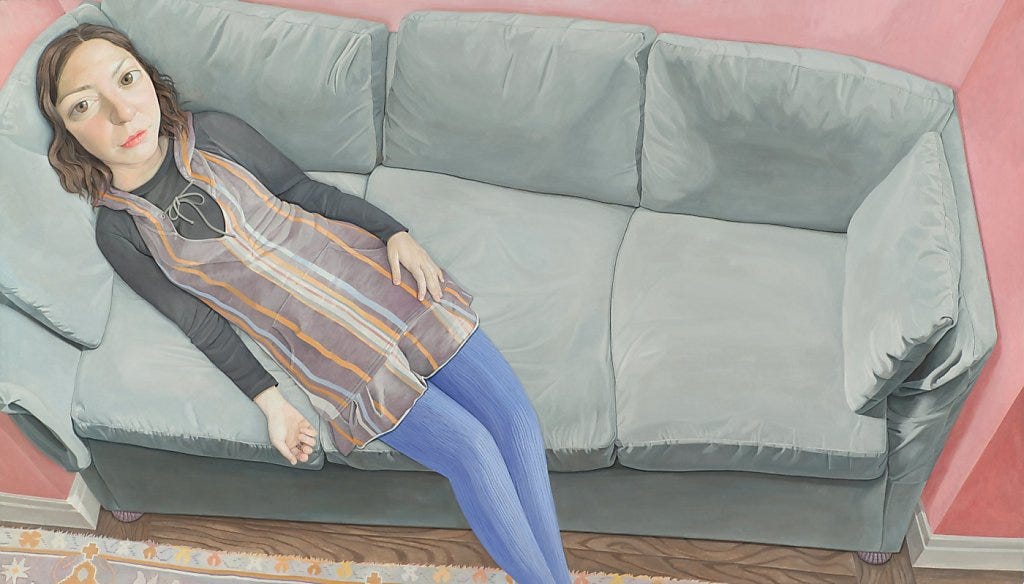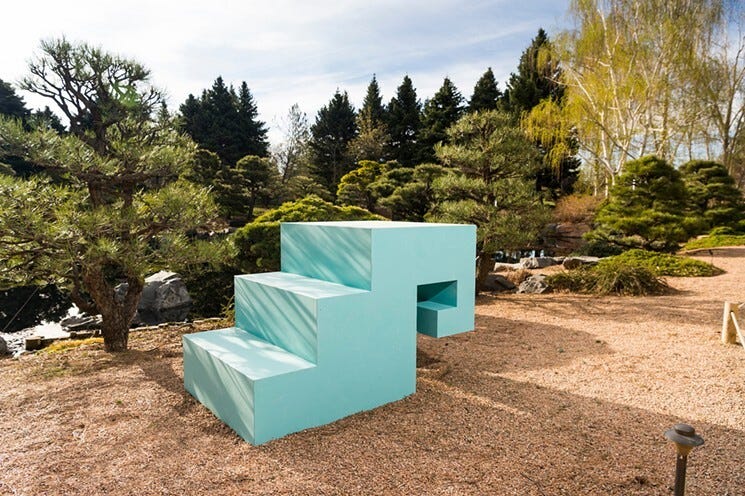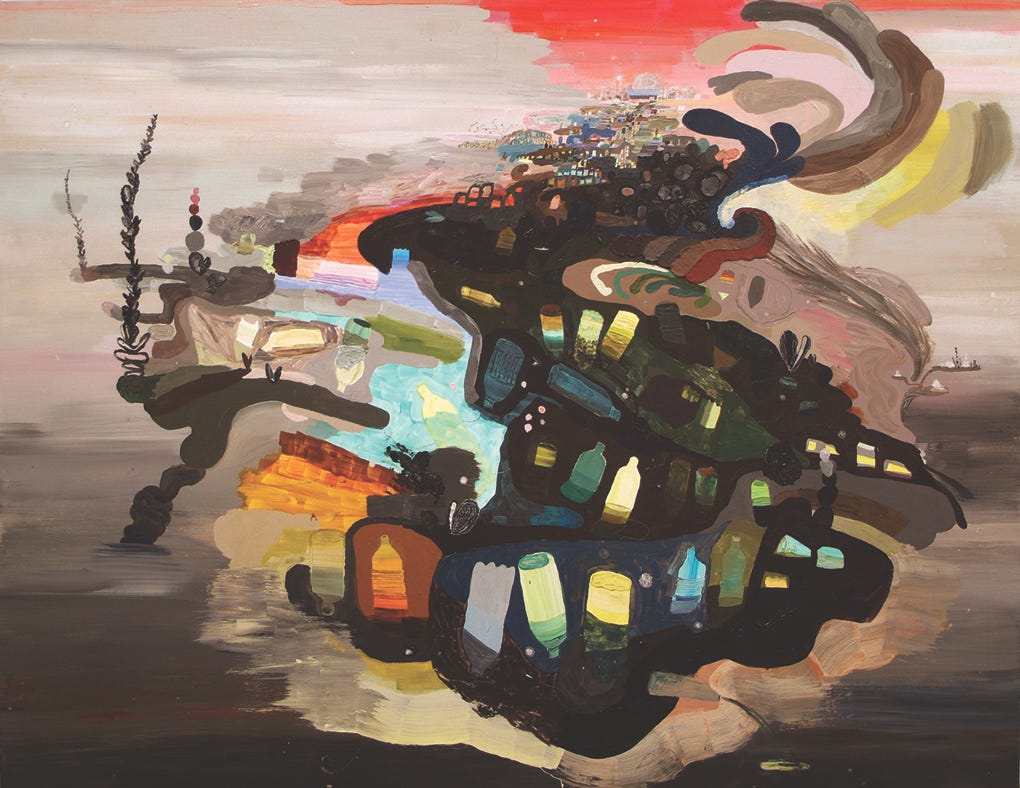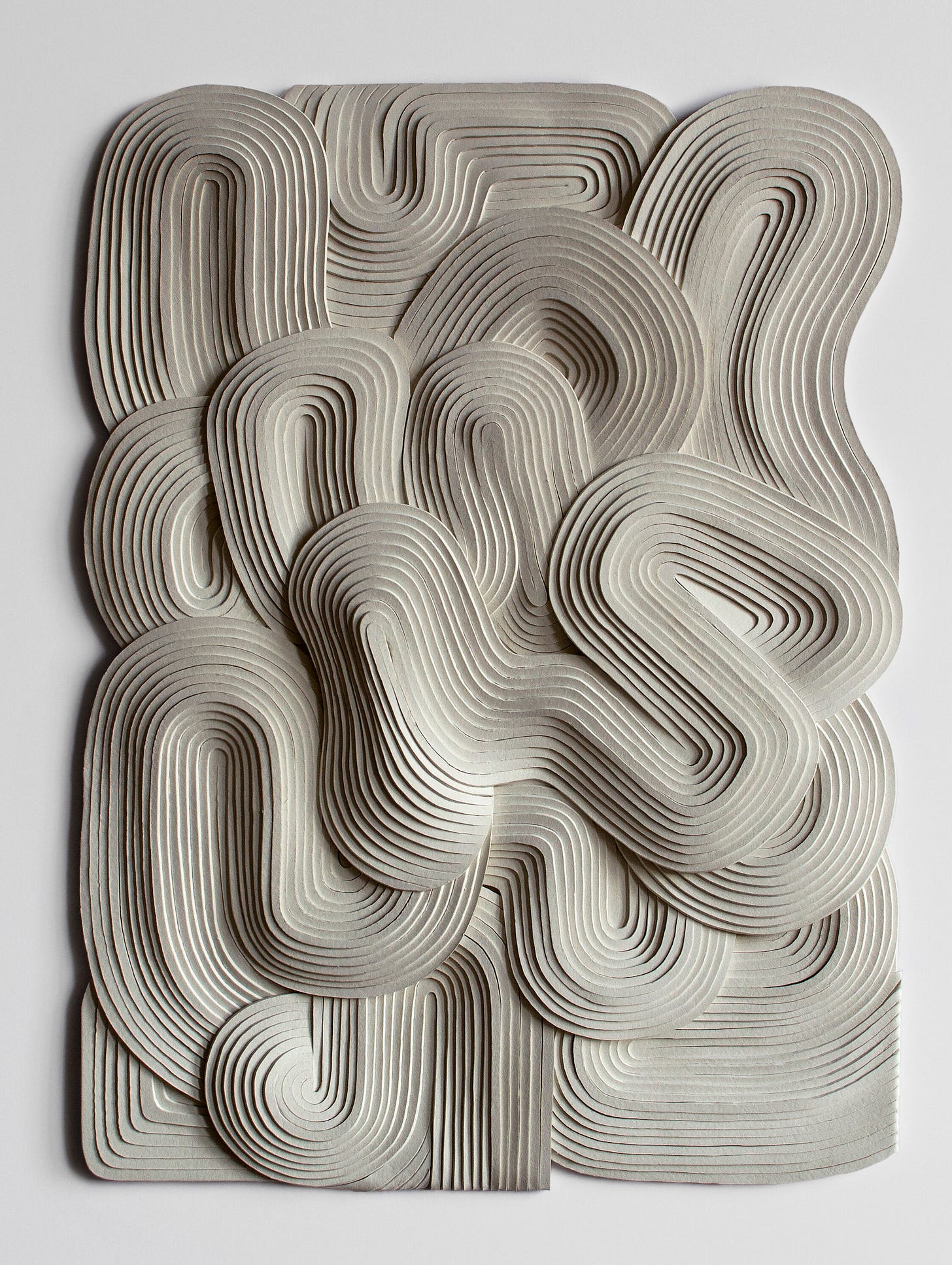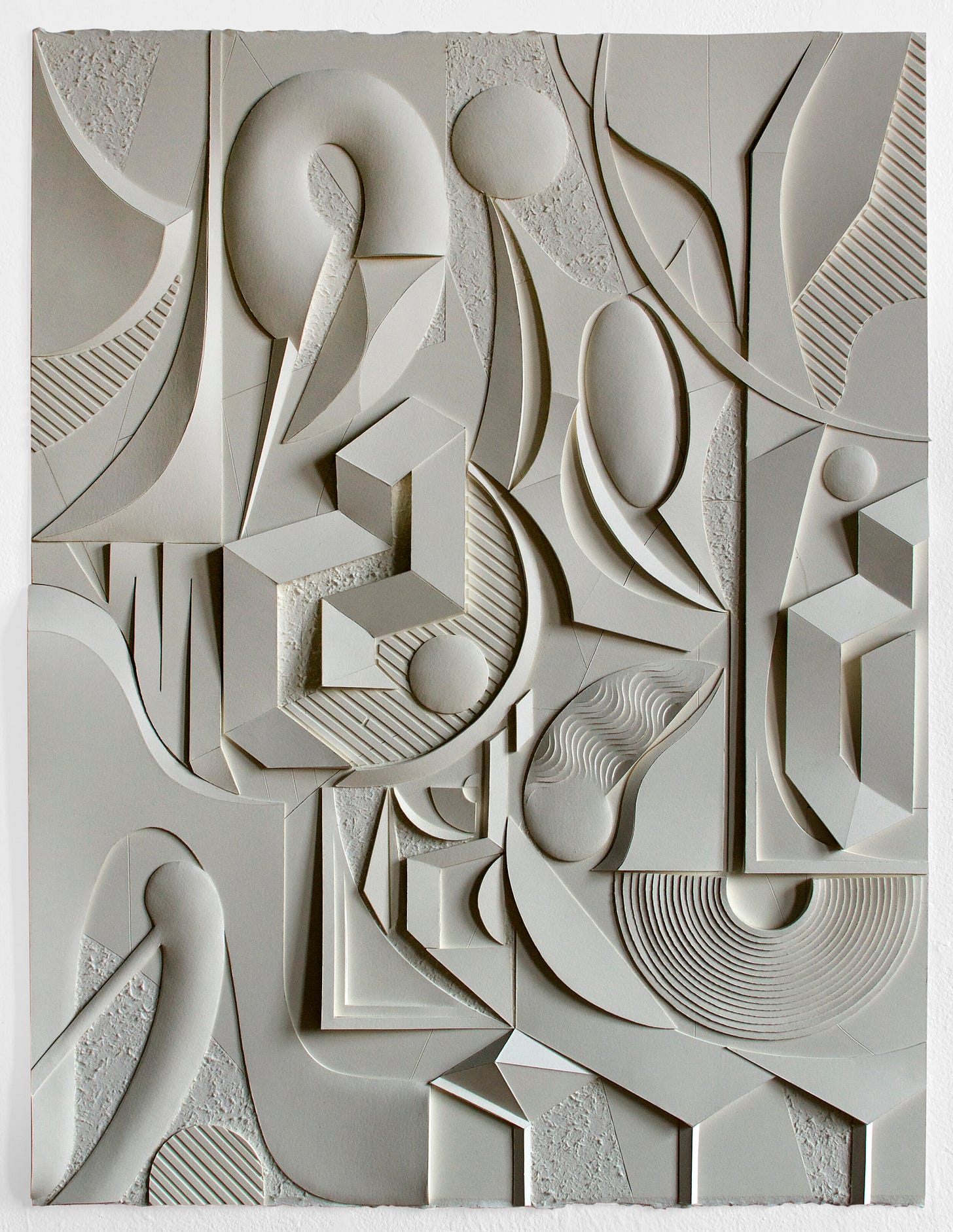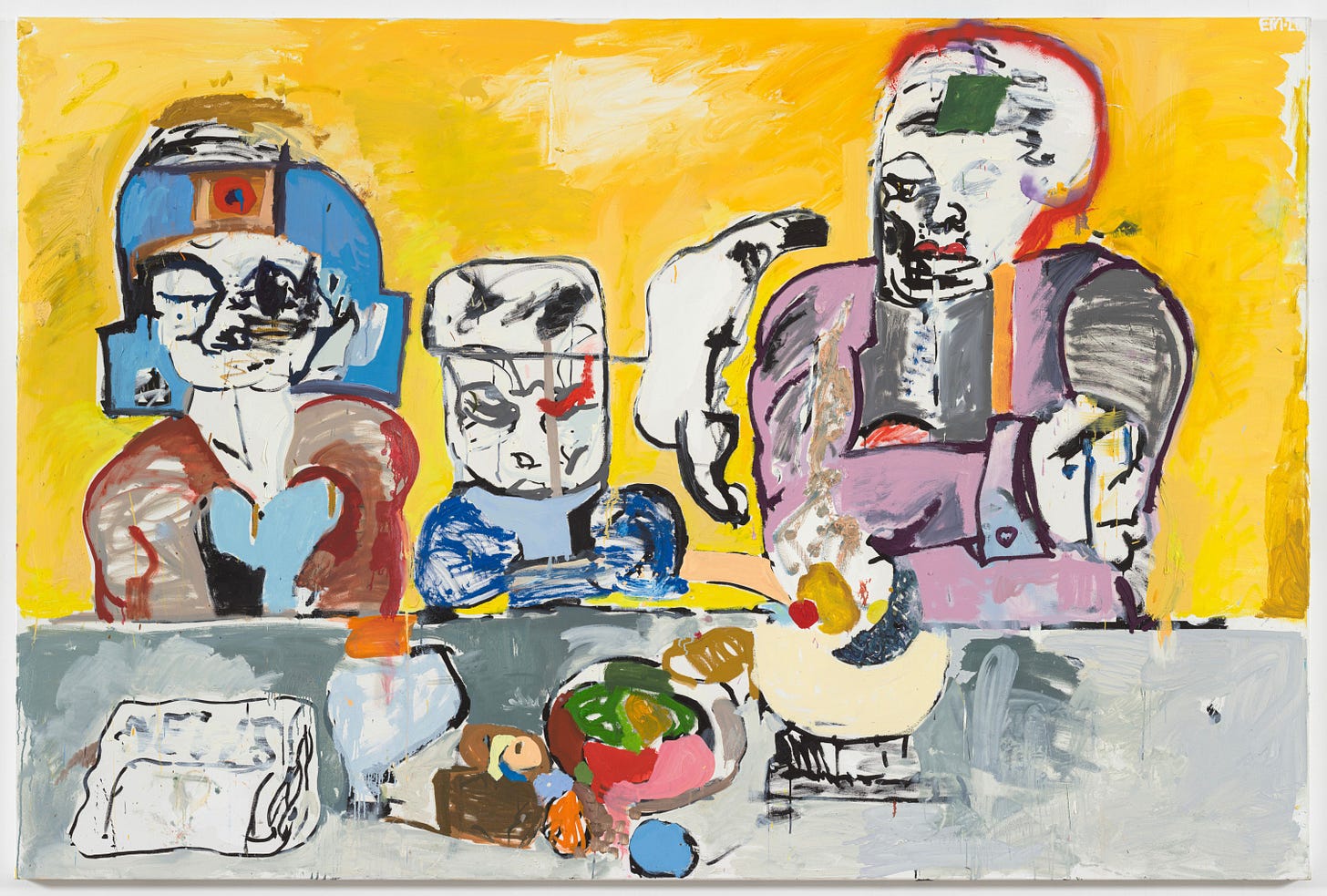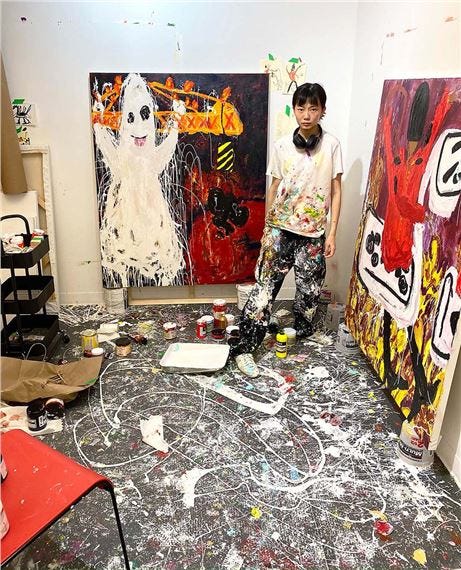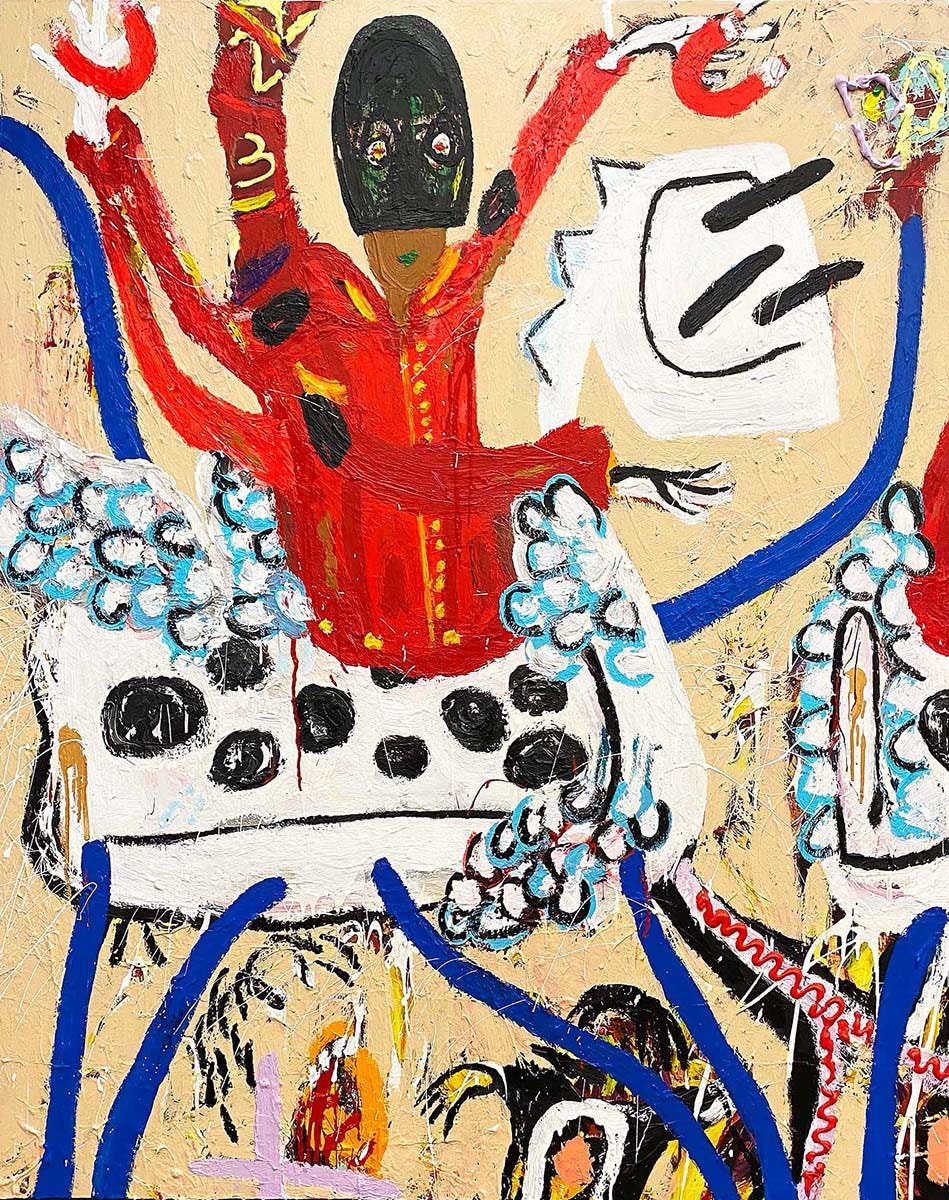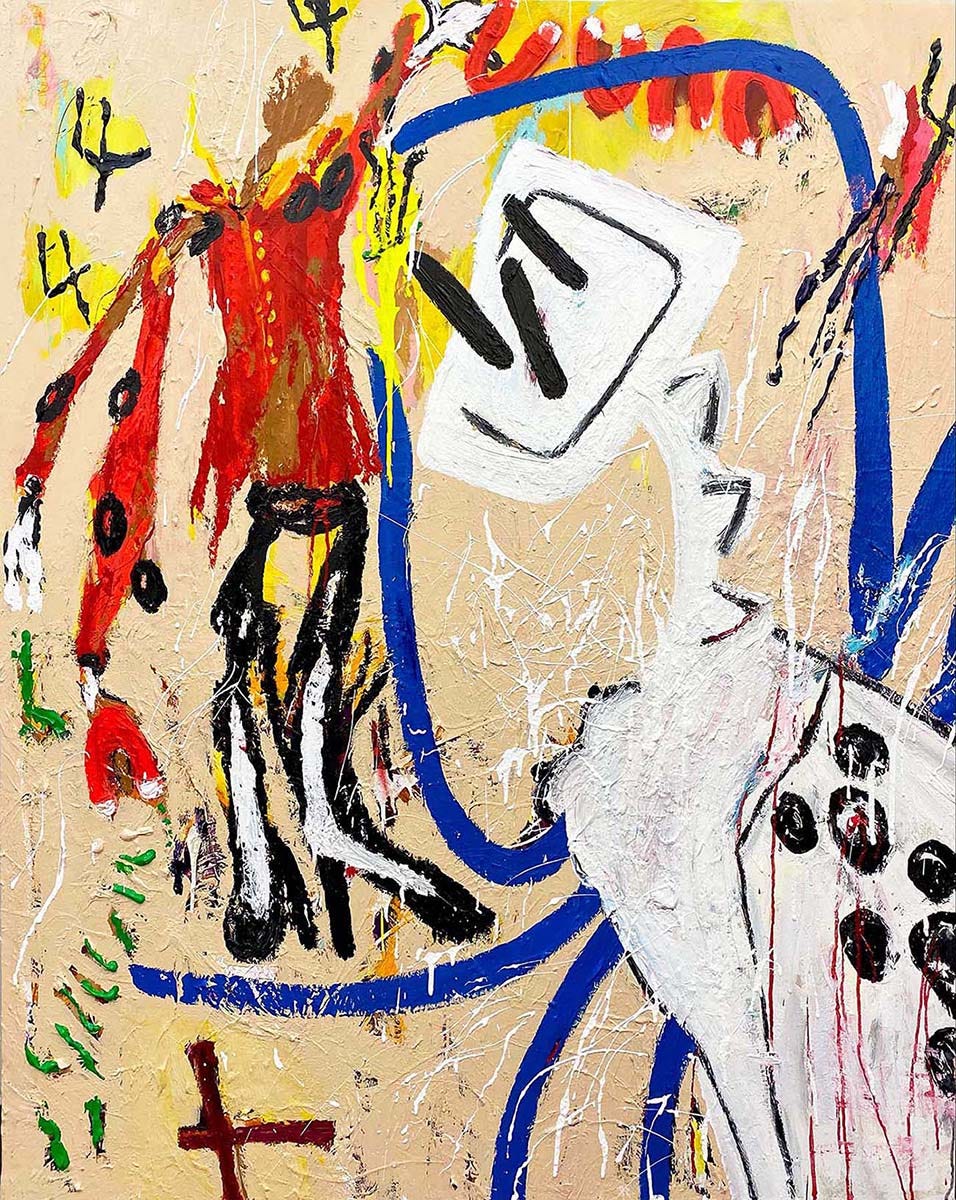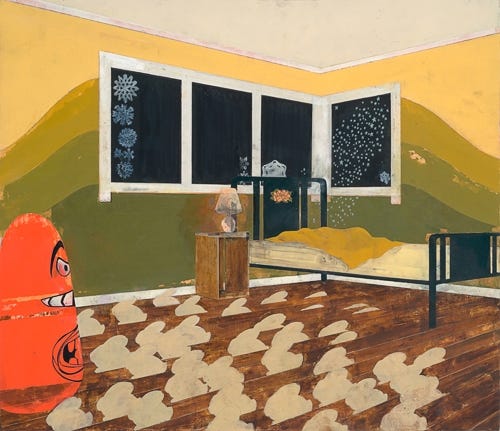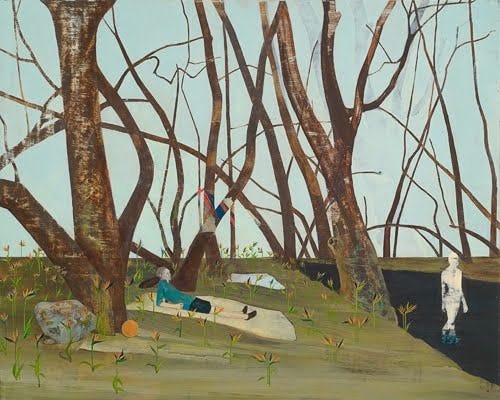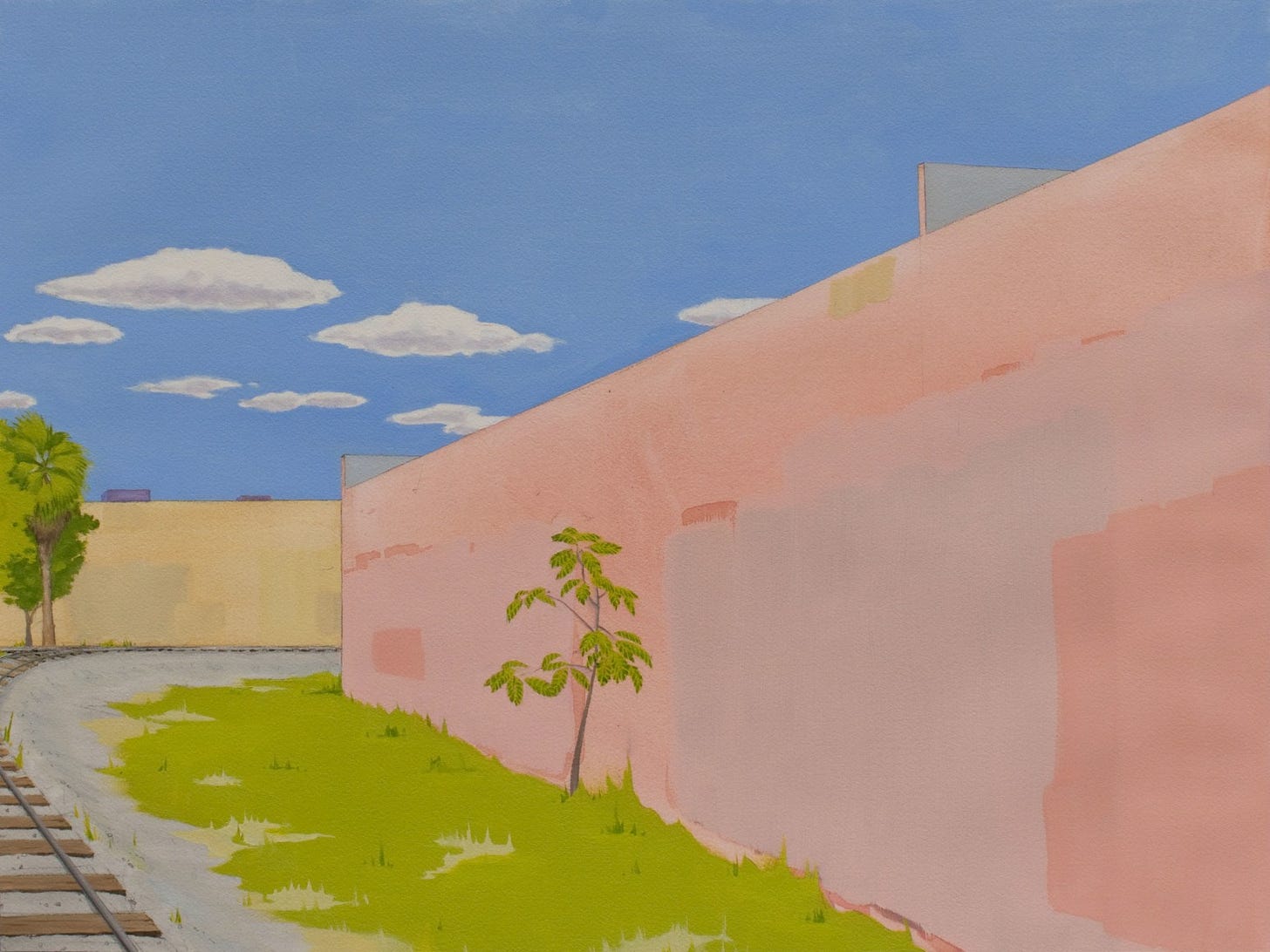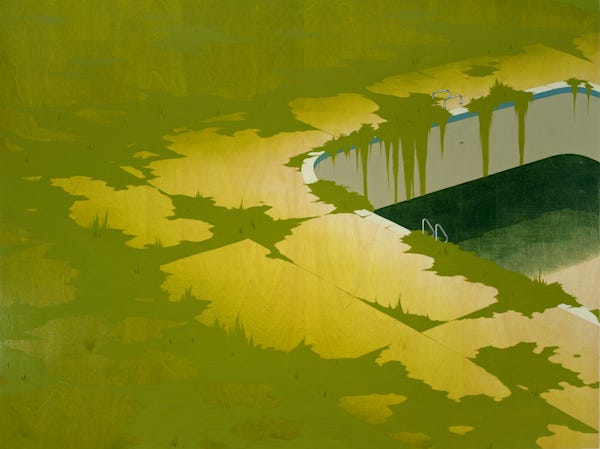Welcome to (Year 2: Month 11: Volume 2), the new exclusive collection for paid subscribers!
BIG NEWS!!! about the future of this newsletter is coming! I’ll elaborate next month. For now…I’ll just say stay tuned and thank you again for supporting this project, I really appreciate it!
As always this volume is absolutely bursting with contemporary art, fashion, music, literature, videos, and other uncategorizable materials…
Also, ICYMI: The third mixtape is now available for free!! And in case you missed the previous two, here’s Mixtape #1 and Mixtape #2.
Don’t forget this newsletter will exceed most email limits, so you’ll need to click through to “view entire message” at the bottom of this email or click over to the website to enjoy the whole thing.
And remember, every entry comes with a link so you can explore more and more.
Now then, without further ado…
Kee Avil | "saf" [Official Video]
Wade Tullier “(b.1988, Baton Rouge, Louisiana) is a Detroit-based visual artist working primarily in ceramics and sculpture.”
When you ask this question, what immediately comes to mind is the sensation of being on my knees in a maple forest, in the springtime with my basket, going out to gather food or medicine. In this case, the memory is of leeks; I can smell those crushed leeks under my knees and am so grateful for their presence after a long winter—to feel this vitality coming up from the ground, the fact that they are offering themselves to me, as food. That way of thinking—that they are alive, they have agency, they’re offering this gift—that’s part of kin and getting to know them, getting to know their gifts.
But what really made me think about it as kinning is when I had some of them in my basket. Then I noticed that they were real close and too dense for one another. There wasn’t room for them to stretch out. And I felt this: Oh, I see you have the gift of being leeks. I have the gift of mobility that you do not. I understand what you’re asking of me. Could you separate us? Could you move us and transplant us around so that we have more space? And in that act of gently removing them, I had to think, Well, where do they want to live? Where’s the right place for their thriving? Suddenly in that act of being asked and then responding to move them around, we were in reciprocity with each other. And to me, that’s what kinning is. We become kin when we share gifts and can help each other out, just like members of our human family. So that for me is a moment which is really alive, of feeling like I was in a reciprocal exchange of gifts with those leeks. And it has changed my perspective on our responsibilities as humans ever since.
— from a conversation between Robin Wall Kimmerer, John Hausdoerffer, and Gavin Van Horn, the coeditors of the five-volume series Kinship: Belonging in a World of Relations (Center for Humans and Nature Press, 2021), via Orion
Yuval Pudik lives and works in Los Angeles.
Palestinian artist Alaa Albaba was born in Jerusalem in 1985.
Malak Mattar “is a Palestinian painter, illustrator, and author of children's books. She is from Gaza.”
Merlin is as self-reflexive as it gets. Lots of postmodern tricks are employed here, but they are not an end in itself. First and foremost, the play is a very dense, personal vision of the Arthurian romances, obviously refracted through the prism of avant-garde art and the cold war mentality and presented as a series of heterogeneous elements bearing the imprints of these preoccupations. The Theatre of the Absurd and the surrealists have definitely been a significant influence: there are echoes of Beckett and Ionesco as well as a couple of scenes that would make David Lynch proud.
— from “Merlin or the Waste Land (Merlin oder Das wüste Land) by Tankred Dorst (in collaboration with Ursula Ehler)”, via The Untranslated
Sliman Mansour “is a Palestinian painter, sculptor, author and cartoonist, considered an leading figure among contemporary Palestinian artists.”
Harmony Korine: Films Should Be A Sensory Experience
From Vanda’s room, there is no way out. As I said: the twenty-first century opened with In Vanda’s Room. “There is no way out: we can’t help but see”. “It becomes impossible to ignore”.
— from a recent collection of essays on Pedro Costa collected at Sabzian
Sarah Fukami was born and raised in Colorado and received a BFA from the University of Denver in 2014.
Ashley Frazier’s “work is a focused mixture of sculpture, drawing, photography and installation.”
Virginia Folkestad is “active in the Denver art community.”
Donald Fodness “earned a BA degree in Art History from the University of Illinois at Urbana Champaign and an MFA in Painting from the University of Colorado at Boulder.”
Trenton Doyle Hancock is an American artist working with prints, drawings, and collaged-felt paintings.
Travis Collinson “is a visual artist whose paintings take elements from photographs and sketches and reinterpret them at larger scale.”
Michael Whiting is an American artist.
Postwar German literature inspired by Joyce: Koeppen, Schmidt, Hildesheimer, Johnson
Lisa Sanditz is an American painter who received the Guggenheim Fellowship in 2008 and the Anonymous Was A Woman award in 2015.
WORM live at Saint Vitus Bar, Apr. 13th, 2023 (FULL SET)
Jim Gaylord is an American artist living and working in New York City.
Forest Swords - Munitions (Official Video)
Direction/build/animation/edit: Sam Wiehl
Art direction: Sam Wiehl & Matthew Barnes
Greg Fadell “is an artist who begins each body of work with an existential question about human nature, history, and physicality.”
Our question will concern the critique of representation. We will need to account for what it is that representation means in the works of Deleuze and Foucault who are here considered, for we may find that even if its general concept is given a more or less similar description by them, the question of its function, which implicates the question of its possibility, diverges. From this, the order of a question may emerge that cannot be filled by either of their accounts, but emerges uniquely in the difference that separates them.
— from “Between Historical Reduction & Metaphysical Construction: Critiques of Representation in Foucault and Deleuze” by Turner Roth, via Epoche
Emily Eveleth “applies classical painting techniques to her quotidian, though evocative, subjects.”
In November 1969, a group of Native activists sailed across San Francisco Bay and occupied Alcatraz Island, home to the infamous prison that had closed in 1963. The occupation lasted until the summer of 1971, when federal authorities besieged the island by cutting off the electricity and water supply before government agents and local police removed the dozen or so remaining inhabitants.
— from “Indian Theater: Native Performance, Art, and Self-Determination since 1969” by Alan Gilbert, via e-flux
“Brooklyn-based artist, Eddie Martinez's work joins together painting and drawing, abstraction and representation in non-traditional ways.”
2003 Baudrillard/Derrida debate on the Iraq War
Yirui Jia (b. 1997) was born in China and currently lives in Brooklyn, New York.
Echo Eggebrecht is an American artist and academic known for landscape paintings.
Christopher Ballantyne’s work “draws on the American landscape where property is prominently divided and no space is unaccounted for.”
Jockstrap - 'Concrete Over Water' (Official Video)
DIRECTOR: Eddie Whelan

